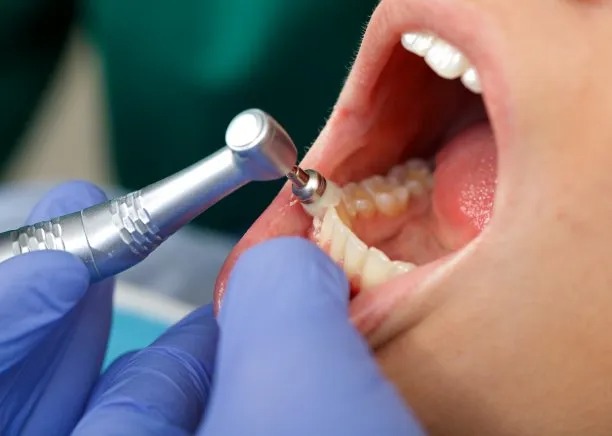Summary: Advances in dental implant techniques have transformed the landscape of oral health care, enhancing both functionality and aesthetic appeal. This article explores the revolutionary impact of these innovations on smiles and self-confidence, detailing four key aspects: the latest technological advancements, the psychological benefits of improved smiles, the importance of personalized treatment plans, and the role of aftercare in successful implant integration. By understanding these elements, individuals can make informed decisions about their dental health, ultimately leading to better outcomes and enhanced quality of life.
1. Latest Technological Advancements in Implants

Recent innovations in dental implant technology have significantly improved the effectiveness and efficiency of procedures. The introduction of 3D imaging and computer-guided placement allows for greater precision, minimizing the risks associated with traditional methods. Dentists can now visualize the entire jaw structure, ensuring optimal placement of implants, which leads to better healing and integration.
Moreover, advancements in implant materials have enhanced biocompatibility and durability. Modern implants often utilize titanium or zirconia, which are not only strong but also stimulate bone growth. This technology has revolutionized the long-term success rates of dental implants, making them a viable solution for countless patients.
Further, the development of mini dental implants offers a less invasive alternative for patients with limited bone density. These smaller implants can be placed with minimal discomfort and recovery time, thereby broadening the scope of treatment options available for individuals who previously might not qualify for conventional implants.
2. Psychological Benefits of Improved Smiles
Aesthetic improvements from dental implants extend beyond mere physical appearance; they profoundly affect mental well-being and confidence. Many individuals who lose teeth suffer from low self-esteem and social anxiety. The prospect of restoring their smile with implants can lead to increased confidence and a more positive self-image.
The psychological benefits are further supported by research showing that individuals with improved oral aesthetics are often perceived as more attractive and successful. The confidence boost from a radiant smile encourages better social interactions and networking opportunities, presenting lifestyle improvements that can significantly influence personal and professional growth.
Additionally, the reduction of oral health issues, such as gum disease and tooth decay, thanks to implants can alleviate anxiety related to dental health. Patients no longer fear the societal stigma associated with missing teeth, which enhances their overall quality of life.
3. Importance of Personalized Treatment Plans
The success of dental implants heavily relies on individualized treatment plans tailored to each patients unique needs. Every person has distinct oral structures, health histories, and aesthetic goals that must be addressed in a comprehensive treatment strategy. Dentists use diagnostic technologies to develop personalized plans that outline the optimal approach for each patient.
Consultative services play a vital role in creating effective treatment plans. During initial consultations, practitioners evaluate factors such as jawbone density, the overall health of the gums, and the patient’s personal aesthetic desires. This thorough assessment allows professionals to recommend the most appropriate implant type and technique, ensuring a higher success rate.
Moreover, ongoing communication during the treatment process provides patients with a sense of security. Regular updates about their progress and potential challenges promote a trusting relationship between the dentist and the patient, further enhancing the overall experience.
4. Role of Aftercare in Successful Implant Integration
Aftercare plays a critical role in the overall success of dental implant procedures. Post-operative instructions from dentists often include guidelines on oral hygiene, dietary recommendations, and follow-up visits to monitor progress. Adhering to these guidelines ensures that the implants integrate well with the surrounding bone and tissue.
Regular follow-up visits are necessary to identify any potential complications early on. Dentists can evaluate the implants integration and make adjustments as needed, leading to better long-term results. These visits also serve as an opportunity to reinforce good dental hygiene practices, essential for maintaining both the implants and overall oral health.
Furthermore, educating patients about the importance of lifelong oral care after receiving dental implants fosters a proactive approach to their health. This awareness reduces the risk of future dental issues and enhances the longevity of their investments in oral aesthetics.
Summary:
In conclusion, the revolutionary dental implant techniques have not only transformed smiles but also empowered individuals by cultivating self-confidence and improving oral health. By emphasizing technological advancements, psychological benefits, personalized treatment approaches, and the significance of aftercare, it is evident that modern dentistry is on a path of continuous improvement to enhance patient experiences.
This article is compiled by Vickong Dental and the content is for reference only.
Vickong Dental
Vickong Dental is a large medical group established in Hong Kong in 2008 by professors from well-known medical universities in Guangdong and Hong Kong, as well as medical doctors from key national '985' universities (including Master's supervisors and senior professors). The chain of branches brings together expert dentists with PhDs and Master's degrees from Hong Kong and Mainland China, committed to providing high-quality dental treatment.
"Vickong Dental Practices the University Motto of 'Healing and Serving Society,' with a Stable Operation for Sixteen Years. It Has Been honored with Hong Kong Enterprise Leaders's Choice,' and is a Global Trusted Implant Center for the Nobel Implant System. Recommended by Hong Kong Metro Broadcast and Guangdong Television, it Serves Customers from Over Thirty Countries and Regions, Gaining the Trust and Favor of Citizens from the Guangdong-Hong Kong-Macau Greater Bay Area and Surrounding Cities.

Thousands of customers' unanimous praise
The most recognized and highly recommended dental service by customers in the Guangdong-Hong Kong-Macau Greater Bay Area
We Ensure You Receive Detailed Care and Attention Here
Hong Kong standards, Shenzhen prices, Your Trusted English-speaking dentists

Vickong Dental Medical-Grade Instrument Disinfection Process
Vickong Dental Medical-Grade Instrument Disinfection Process

Vickong Dental Chain: A Warm and Comfortable Environment for Treatment






Appointment Hours

Q&A
Why choose Vickong Dental?
Vickong Dental practices the university motto 「Medicine to Benefit Society」, with each branch bringing together highly qualified dentists with doctoral and master’s degrees from Hong Kong and the Mainland, and has maintained seventeen years of steady operation。Recipient of 「2024 Hong Kong Enterprise Leaders Brand」, 「2025 Hong Kong Enterprise Leaders Brand」, a Nobel Biocare Global Trusted Implant Center, and a brand recommended by Metro Radio Hong Kong and Guangdong TV。
To date, we have served customers from more than thirty countries and regions,earning exceptionally high word-of-mouth recognition and trusted recommendations from residents across the Guangdong-Hong Kong-Macao Greater Bay Area and surrounding cities
We have eight major branches in Zhuhai、Shenzhen,and a consultation and service assurance center in Hong Kong,so you can book a free consultation at any time for any questions,which is very reassuring.
If I do not accept the quotation after the CT scan, will I be charged??
No! As long as the actual treatment has not started, you will not be charged any fees.
Will there be any additional charges during the treatment process?
No, there won’t be any additional charges. Before treatment begins, we will clearly explain the treatment plan and its corresponding fees. Only after the patient agrees and signs the consent form will we proceed with the dental service.
Can I pay in Hong Kong dollars?
Yes. Vickong Dental accepts payment in Hong Kong dollars. The amount will be converted based on the exchange rate of the day, and the applicable rate will be clearly communicated to you in advance.
Can I reschedule my appointment at any time?
Yes. Please contact us via **WeChat** or **WhatsApp** as early as possible, providing your original appointment time and details, along with your preferred new date and time slot for rescheduling.













